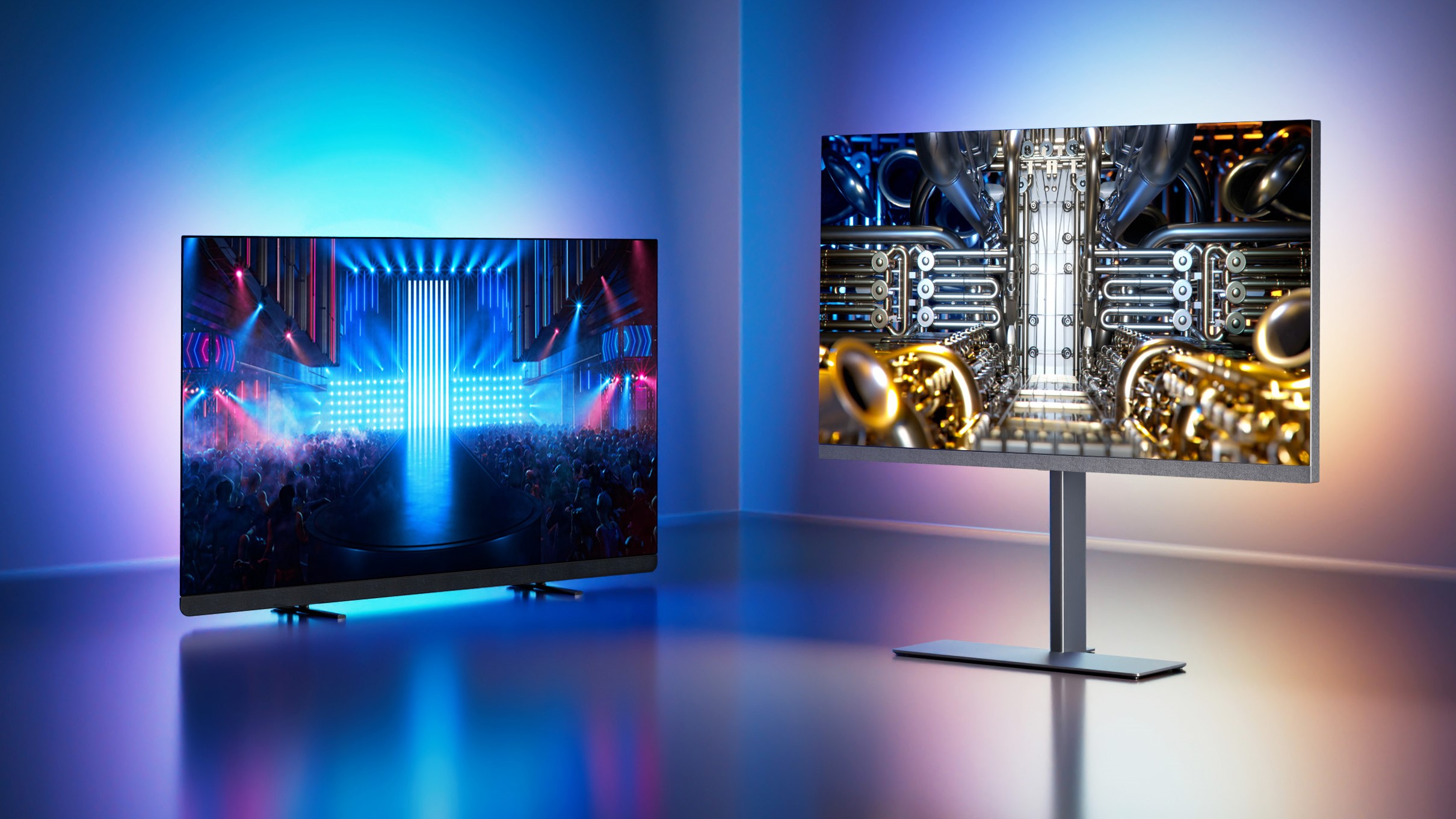Some 2024 Philips TVs will have four HDMI 2.1 sockets – but not its top OLED models
It’s a picture quality vs HDMI features thing

As expected, Philips’ new OLED809, OLED+909 and OLED+959 once again have just two HDMI 2.1 sockets. Unexpectedly, though, the company’s new entry-level OLED759, ‘Xtra’ Mini LED and ‘The One’ LCD models all have four HDMI 2.1 sockets.
On the face of it, that seems bizarre – why would the company’s top, most expensive OLED TVs be hobbled in this regard while the cheaper TVs get the better HDMI spec? However, Philips’ senior director of product strategy and planning, Danny Tack, told me that it’s down to the company now using two different chips and two different platforms across its TV range.
So, yes, the OLED809, OLED+909 and OLED+959 are Google TVs that use the MediaTek Pentonic 1000. This is the same chip that’s used in the top TVs of pretty much every brand except LG and Samsung, and it infamously has just two HDMI 2.1 ports, even though it’s a relatively new design.
Danny Tack confirmed to me, though, that at least some modes in the new Philips range will have four HDMI 2.1 sockets, saying that “below 809, we have our OLED759, we have our Xtras, we have our Ones – those this year will have four HDMI 2.1s”.
These lower-end models are on the new Titan platform and Tack explained that they feature a Novatek chip that has four HDMI 2.1 sockets. But they also have a lesser processor, the 7th Gen P5, whereas the OLED809 and OLED+909 have the 8th Gen P5 AI, while the OLED+959 features the 8th Gen P5 AI Dual Engine. Both of these 8th Gen processors offer a number of features that the lesser processor does without. Tack suggests it’s a simple trade-off, saying it’s a case of “more PQ [picture quality] with less HDMIs”.
When I asked Tack if Philips has a plan to add more HDMI 2.1 sockets to its flagship sets, he explained that while the brand could in theory “do it by ourselves with extra multiplexers and this and that, we’re not going to do that”.
There is good news, though: Tack went on to say, “We know that in the roadmap of Pentonic, in the future there will come more [HDMI 2.1 ports]. Once that chip is available, we will go for that one, and then port all our PQ processing on to that one.”
Get the What Hi-Fi? Newsletter
The latest hi-fi, home cinema and tech news, reviews, buying advice and deals, direct to your inbox.
So, for now, a Philips TV buyer will have to choose between more advanced picture processing and more HDMI 2.1 sockets, but it sounds as though that will change in the not-too-distant future. It is worth noting, too, that while the OLED809, OLED+909 and OLED+959 have just two HDMI 2.1 sockets, Philips has this year added support for 4K/144Hz gaming, even in Dolby Vision, plus an upgraded Game Bar for on-the-fly access to gaming features and information.
MORE:
Philips's new OLED TVs feature 3000-nit MLA tech, upgraded Ambilight and B&W sound
These are the best TVs you can buy right now
Here's everything you need to know about HDMI 2.1
Tom Parsons has been writing about TV, AV and hi-fi products (not to mention plenty of other 'gadgets' and even cars) for over 15 years. He began his career as What Hi-Fi?'s Staff Writer and is now the TV and AV Editor. In between, he worked as Reviews Editor and then Deputy Editor at Stuff, and over the years has had his work featured in publications such as T3, The Telegraph and Louder. He's also appeared on BBC News, BBC World Service, BBC Radio 4 and Sky Swipe. In his spare time Tom is a runner and gamer.

